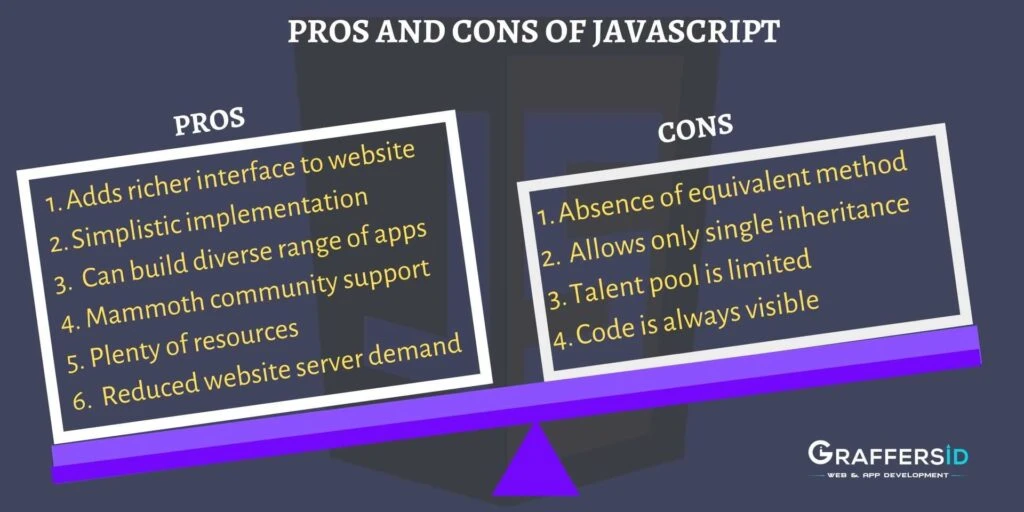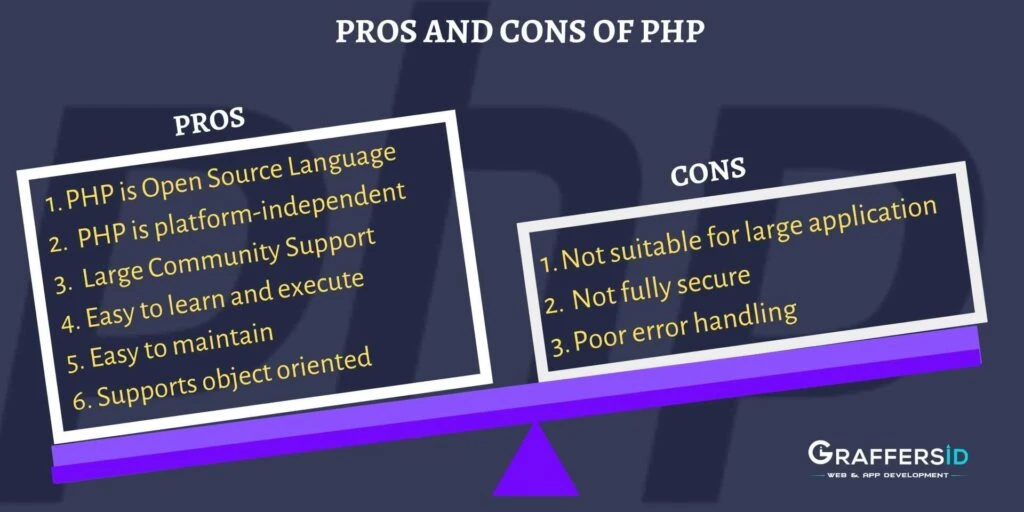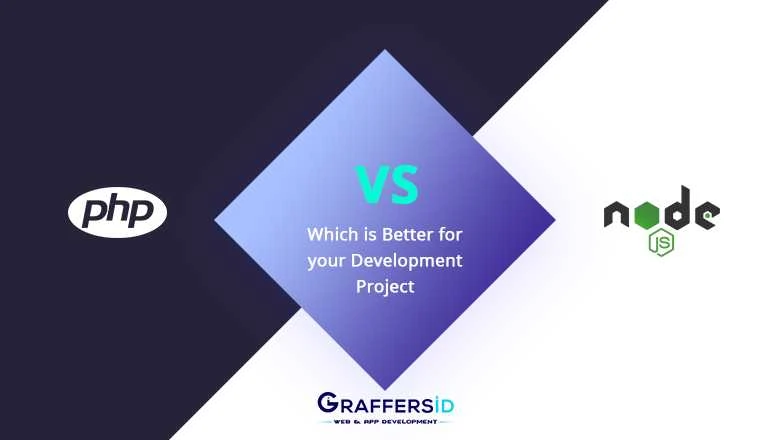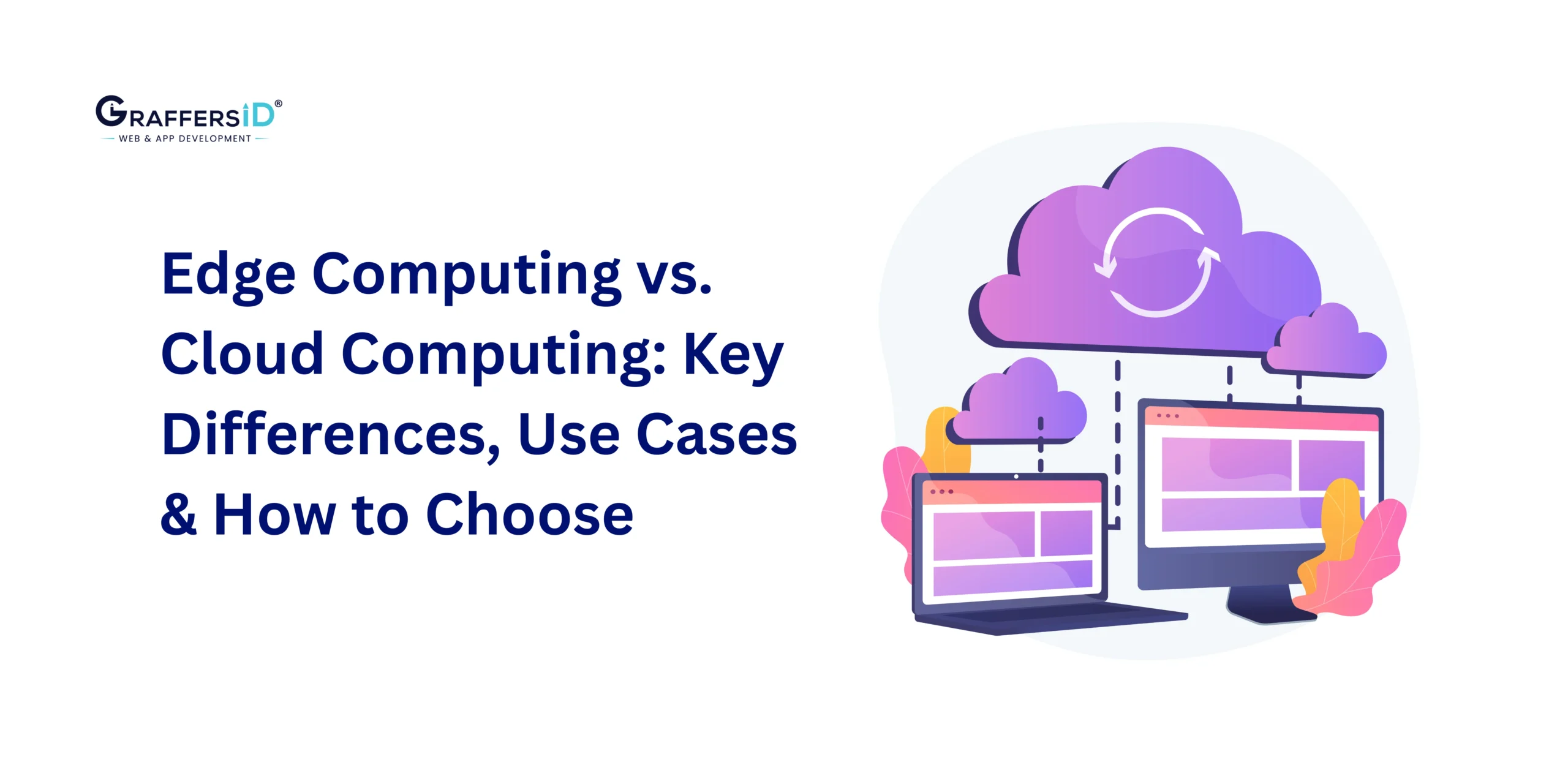Web development appears to be a diversified and ever-changing field. Every now and then, there is a technology, trend, or tool, due to which developers experience the dilemma. Developers often get confused between long-term, mature solutions and the latest ones. Backend programmers these days are in continuous doubt these days to picking the most appropriate language between PHP vs NodeJS.
Earlier, JavaScript (the one that underlies NodeJS) didn’t overlap with PHP. Earlier, JavaScript was used to design the front end of the application, whereas PHP was used for developing server-side applications. Combined together, these two languages resulted in an amazing website.
However, as soon as NodeJS came into the picture, the situation started changing. Node.js entered a server-side sphere and distracted the backend programmers from traditional PHP.
Although both PHP and Node.js are able to deal with any complexity of the application, they are built around different concepts and architecture.
If you are a business owner or an app owner, picking one of the two programming languages for your web development project can be a daunting situation. To avoid such a situation, you can consult GraffersID for a software development partnership.
However, in this blog, we will be providing you with answers to all your questions, which will eventually help you in selecting the right language as per your business needs and requirements.
The blog will be unfolding:
Overview of PHP:
Developed in 1994 by Rasmus Lerdorf, PHP or Hypertext Preprocessor is an open-source server-side scripting language. In the survey by W3Tech, it was found that 79% of the websites in their data are developed using PHP. Moreover, the growing popularity of content management systems like WordPress, Drupal, WooCommerce and Shopify clearly shows how PHP has covered the backend under its wings.
Key Features of PHP:
-
Server-Side Scripting: PHP is primarily designed for server-side scripting, meaning it runs on the server and generates dynamic web content before sending it to the client’s browser.
-
Ease of Learning: PHP has a relatively low learning curve, making it accessible for beginners. It has a simple and straightforward syntax, making it an ideal choice for those new to web development.
-
Huge Community: PHP has a massive and active developer community. This community provides a wealth of resources, tutorials, and support, which can be invaluable when you encounter challenges during development.
-
Compatibility: PHP is compatible with various databases, including MySQL, PostgreSQL, SQLite, and more. This compatibility makes it versatile for building web applications that rely on different database systems.
-
Mature Ecosystem: PHP boasts a mature ecosystem with a wide range of frameworks like Laravel, Symfony, and CodeIgniter, as well as popular CMS platforms like WordPress, Joomla, and Drupal. These tools simplify development and save time.
-
Interoperability: PHP can be embedded in HTML, making it easy to integrate dynamic content into web pages seamlessly.
Overview of Node.js:
Node.js is a runtime environment, which includes everything that is needed to execute a program written in JavaScript. NodeJS combines a single-threaded non-blocking event loop, Google 8V Javascript engine, and low-level I/O API.
Owing to its event loop, Node.js provides more efficient management of the requests. For instance, when the system reads one file, Node.js works on other requests. After the system reads the file, it sends it to the browser. In a nutshell, while one job is getting finished, Node.js jumps to the next one.
Key Features of Node.js:
-
JavaScript Runtime: Node.js is a server-side runtime environment that uses JavaScript as its primary programming language. This allows for code reuse and a more unified development stack when used alongside front-end JavaScript.
-
Non-Blocking I/O: Node.js uses an event-driven, non-blocking I/O model, which enables it to handle multiple connections and concurrent requests efficiently. This makes it particularly well-suited for real-time and high-performance applications.
-
NPM (Node Package Manager): Node.js comes with npm, a powerful package manager with an extensive library of open-source modules and packages. This makes it easy to find and integrate third-party code into your projects, saving development time.
-
Scalability: Node.js is designed with scalability in mind. Its event-driven architecture and non-blocking nature make it ideal for building applications that need to handle many simultaneous connections, such as chat applications and online games.
-
Cross-Platform: Node.js is cross-platform, meaning it can run on various operating systems, making it a flexible choice for developers who work with different environments.
-
Community and Support: Node.js has a growing and active developer community that provides support and continually expands the ecosystem of available libraries and frameworks.
-
Real-Time Applications: Node.js excels in developing real-time applications like chat applications, collaborative tools, and live-streaming services due to its ability to handle multiple, simultaneous connections efficiently.
This was a brief introduction to both languages, now let’s have a detailed comparison of the two.
Node.js vs PHP: Hosting
PHP language is supported by a wide range of hosting services. On the other hand, Node.js comes with only a limited number of hosting services. The multiple hosting options available make the deployment and integration of PHP easier than Node, which calls for a virtual server having SSH access for running the web applications.
Node.js vs PHP: Database
PHP works perfectly well with MySQL databases and also offers support to a range of database forms like PostgreSQL and MariaDB. The code functions admirably with databases and is not dependent on the engines used.
Node.js has various libraries for getting to SQL. It also uses JSON to connect with another type of NoSQL database.
While you can also use the PHP project for supporting JSON, it is more beneficial to use JavaScript as you have a single code for both the servers.
Read also: PHP or Python: Which Language to Choose for Server-Side Development?
Node.js vs PHP: Performance
PHP provides reliable and stable performance when it comes to web development, as compared to the JavaScript framework. However, when PHP and Node.js are compared, you will notice that Node.js is faster than PHP due to the following USPs:
- Continued Server Connection
- Speed-friendly V8 engine
- Callback functions that process several requests at the same time.
Node.js vs PHP: Practical Application
Node.js can be used in a number of places including multithreaded apps, browsers, game servers, web apps, etc. However, PHP is mainly used for web-based applications.
Node.js vs PHP: Evolution of the Environment
PHP is a language that is a continuous track of updates and development. The developers of this language consistently come up with new concepts and features to give a high execution speed.
Node.js is also on a constant development track. Node.js comprises all the modern functionalities in one distribution, where there is no fragmentation. This is of great benefit to the programmers as they have to spend zero time on a complete reworking of the code.
Let’s also have a look at the advantages offered by both the languages:
Advantages of Node.js:

Easy to learn:
Since JavaScript stands are one of the most popular programming languages, many front-end programmers have good knowledge about it. Node.js is not only easy to learn, but it also consumes less to work with it.
Fast backend solution:
JavaScript can be used to service various concurrent events. By making use of Node.js, the developers can create scalable solutions that maximize the computer’s memory and CPU usage as they service various requests. For that, you can hire dedicated Nodejs developers in India, with minimal experience of 2 to 5 years.
More flexible:
Software app development with Node.js comes with a limited number of dependencies and guidelines. There are no rules asking programmers to choose architecture or set a pattern, which offers them access to thousands of different modules.
High Performance:
Node.js is built on the V8 engine, known for its speed and efficiency. It allows developers to write server-side code using JavaScript, which is a non-blocking, event-driven language. This results in exceptionally fast and responsive applications, making it an ideal choice for real-time applications, such as chat applications or online gaming.
Scalability:
Node.js is designed to handle a large number of concurrent connections efficiently. It’s a great choice for applications that need to scale horizontally, as it can handle multiple concurrent requests with ease. This is particularly valuable for businesses experiencing rapid growth.
Rich Ecosystem:
Node.js has a vibrant ecosystem with a wide range of libraries and modules available through the Node Package Manager (NPM). These pre-built packages simplify development, allowing developers to add features and functionality to their applications quickly. It promotes code reusability and significantly speeds up the development process.
Community Support:
Node.js boasts a large and active community of developers who actively contribute to its development and create numerous open-source packages. This provides a wealth of resources and solutions for developers facing challenges during their projects.
Disadvantages of Node.js
Single-Threaded:
Node.js follows a single-threaded event loop model. While this design allows it to handle many concurrent connections efficiently, it can become a limitation when dealing with CPU-intensive tasks. Such tasks can block the event loop, causing performance issues for other incoming requests.
Callback Hell:
Writing asynchronous code in Node.js often leads to callback hell, a situation where code becomes difficult to read and maintain due to excessive nesting of callbacks. Although there are solutions like Promises and async/await to mitigate this issue, it still requires careful coding.
Immature Libraries:
While Node.js has a robust ecosystem, some libraries might be less mature or less maintained. This can lead to compatibility issues and hinder development progress. It’s crucial to choose well-maintained libraries to avoid potential problems.
Limited Multi-Core CPU Utilization:
Node.js primarily uses a single core, which can be inefficient for applications that require intensive parallel processing. To fully utilize multi-core CPUs, developers often need to implement additional tools or libraries.
Cold Start Latency:
Node.js applications may suffer from a “cold start” latency issue, where the initial response time is slower due to the time it takes to spin up the Node.js server. While this is less of a concern in long-running applications, it can be a drawback for serverless functions or microservices.
Read Also: NodeJS advantages and disadvantages
Advantages of PHP

Maintenance:
PHP framework is usually employed to make web application development easy and maintain the code automatically. The MVC architecture in the PHP framework aids in using and maintaining the code. Moreover, the MVC architecture also helps in the separation of files for each module.
Stability:
PHP is quite stable compared to various programming languages. PHP has been in existence for quite a long time. Moreover, the programmers who have already worked on PHP have made it easier for developers to develop PHP-based applications. They have fixed the bugs and issues over a specific period of time for various available versions of PHP and hence made it stable.
Open Source:
One of PHP’s most significant advantages is its open-source nature. This means that developers can access, use, and modify the source code without any licensing fees. This fosters a collaborative community, resulting in continuous improvements and a vast repository of online resources.
Cross-Platform Compatibility:
PHP is a cross-platform scripting language, meaning it can run on various operating systems, including Windows, Linux, and macOS. This flexibility allows developers to create applications that can be deployed on diverse hosting platforms.
Integration with Databases:
PHP seamlessly integrates with various databases, including MySQL, PostgreSQL, and MongoDB. This makes it an excellent choice for developing dynamic web applications that rely on database interactions.
Frameworks and Libraries:
PHP has an array of powerful frameworks like Laravel, Symfony, and CodeIgniter, which simplify and expedite the development process. These frameworks come with built-in functions, libraries, and tools for various tasks.
Disadvantages of PHP
Inconsistencies:
PHP has faced criticism for its inconsistencies in function names and parameters. This can be confusing for developers who are new to the language or working with specific functions.
Security Concerns:
Security has been a longstanding issue in PHP development. While PHP offers built-in security features, developers need to be vigilant and follow best practices to prevent vulnerabilities like SQL injection and cross-site scripting (XSS) attacks.
Performance:
PHP’s performance is a subject of debate. While it’s suitable for many web applications, it may not be the best choice for extremely high-performance, real-time applications. Solutions such as Node.js and Go are often preferred for such cases.
Limited Object-Oriented Features:
Although PHP has introduced improved support for object-oriented programming, it lags behind in comparison to languages like Python or Ruby. This can be a drawback for developers who prefer working with more advanced object-oriented features.
Lack of Multithreading:
PHP is not the ideal choice for applications that require multithreading support due to its architecture. This can limit its use in scenarios where simultaneous processing is crucial.
Documentation:
While PHP’s community is active, the quality of documentation can vary. In some cases, documentation might be outdated or lacking, making it challenging for developers to find the information they need.
Want to hire NodeJS or PHP developers? Consult Us Now
Is Node.js overtaking PHP in popularity in 2024?
The year 2024 witnesses a significant shift in web development trends. Node.js continues to gain traction, particularly in projects requiring real-time functionality, microservices architecture, and single-page applications. Its asynchronous nature and robust ecosystem of packages contribute to its growing popularity among developers.
Meanwhile, PHP maintains its stronghold in certain domains, particularly in legacy systems, content management systems (CMS) like WordPress, and traditional web applications. However, its growth seems to plateau, as newer technologies offer more modern and efficient solutions to contemporary challenges.
In conclusion, while Node.js is undoubtedly gaining momentum and reshaping the landscape of web development, PHP continues to hold its ground in specific niches and use cases. The choice between Node.js and PHP depends on various factors, including project requirements, scalability needs, development team expertise, and legacy considerations.
Which One is Better: PHP or Node.js?
The choice between PHP and Node.js depends on your project’s specific requirements and your team’s expertise. Here are some considerations to help you decide:
-
Project Type: If you’re building a content-driven website or working with a CMS like WordPress, PHP might be a better choice due to its strong support for such applications.
-
Real-time Features: For applications that require real-time features like chat, messaging, or live updates, Node.js’s event-driven architecture is better suited to handle these demands.
-
Team Expertise: Consider your team’s familiarity with the languages and frameworks. If you already have JavaScript developers, Node.js could be a seamless transition.
-
Performance Needs: Node.js shines in high-performance scenarios, while PHP can be a reliable choice for standard web applications. Evaluate the performance requirements of your project.
-
Ecosystem and Libraries: Take into account the libraries and frameworks available for each language. PHP has a wide range of CMS options, while Node.js offers a vast ecosystem of npm packages.
Future Prospects for PHP and Node.js in web development
Future of PHP:
While PHP may no longer be the hottest topic in web development, it still has a strong presence, especially in legacy applications. The future prospects for PHP lie in maintaining and modernizing existing systems, serving as a stable foundation for businesses unwilling or unable to transition to newer technologies. PHP can also be a stepping stone for beginners to enter the world of web development.
Future of Node.js:
Node.js has a bright future in web development, especially for real-time and high-performance applications. Its versatility and performance are unmatched in these domains, and as more companies focus on real-time user experiences, Node.js will continue to gain ground. However, it may not be the ideal choice for every project, especially those that don’t require its unique strengths.
Conclusion
Both Node.js and PHP are as great as a server-side framework. Both languages have some pros and cons, however, the best part is both languages have developed experts in order to make mobile and web development better. If you develop software, you can hire senior NodeJS developers or PHP developers from GraffersID.
So, while choosing a technology make sure you are picking the language that is able to meet your requirements in the most appropriate manner. Understanding the project logic and business requirements provides you with a clear idea for choosing the right technology for your project.



